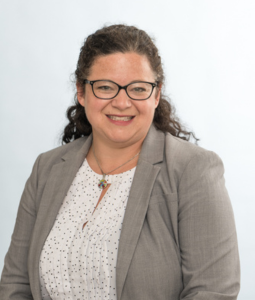 Alumni Profile: Jody Siker ’00
Alumni Profile: Jody Siker ’00
Degree(s): BS Psychology and Biological Aspects of Conservation, UW-Madison; MS Exceptional Education, UW-Milwaukee; PhD Joint Doctoral Program in Special Education, University of California, Berkeley and San Francisco State University
Current Occupation: Assistant Professor of Special Education, Northeastern Illinois University
What are some of the benefits of your psychology degree?
I used what I learned at UW-Madison in both of my subsequent degrees because education is situated theoretically in psychology. I also have always been drawn to psychological constructs, such as self-regulation and motivation, in my work with K-12 and post-secondary students. Many concepts cross over, such as statistics, research methods, psychology of language, and neuropsychology, so I have used and applied what I learned from my psychology degree in my subsequent degrees. In my PhD program, I worked with school psychology students because our programs were parallel, so I am glad I majored in psychology.
How did you find your way to your current profession?
I always wanted to be a teacher, so after graduating from UW-Madison, I was a substitute teacher and classroom assistant for a year before applying for post-baccalaureate programs. I started teaching special education through a partnership with UW-Milwaukee and Milwaukee Public schools in 2002 and earned my MS degree at the same time as earning my teaching credential. After working 5 years in MPS, I moved to San Francisco and worked two years as a special education teacher in SFUSD. My interest in research and working to educate teachers sent me back to school for a PhD in 2009. There are many paths you can take with a PhD, but I always wanted to be a teacher educator, so I accepted a job as a tenure-track assistant professor at UW-Parkside in Kenosha, WI right after graduating with my PhD in 2015. I wrote two programs for UWP and also became very interested in working with other faculty to improve their teaching. I left UWP for personal reasons and started as a tenure-track assistant professor at Northeastern Illinois University in Chicago, IL in 2019. NEIU aligns with my interests in anti-racist pedagogies and transforming people through education. As a “Hispanic-Serving Institution” with a racially-diverse student body, we also have a focus on access for students who are the first in their families to go to a university. I mostly work with graduate students who work as paraprofessionals (i.e., educational assistants) and are seeking their special education teaching credential. I also do research as part of my job, which draws heavily on what I learned in my psychology classes.
What advice would you give to students graduating with a psychology degree?
In my experience and based on observation, a psychology degree is like graduating with a set of open doors. You should plan on continued study so you can focus in on a career path, but you are situated well to choose a number of pathways. I knew I wanted to teach, but I wanted to spend my time at UW-Madison really diving into content and theory, saving the methods of teaching for later. There are many careers that cross-over with psychology because understanding human behavior is an ongoing quest for all of us.